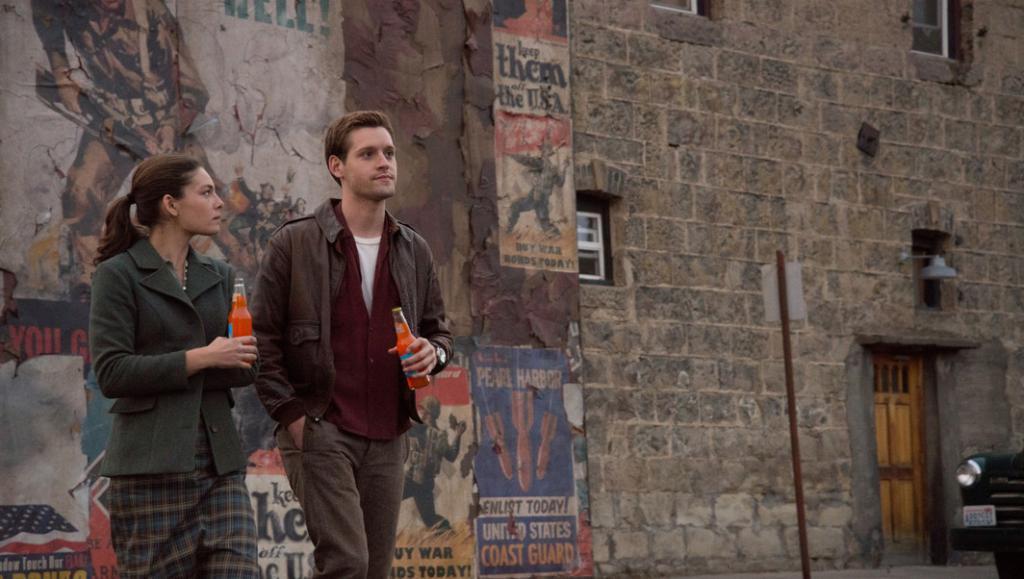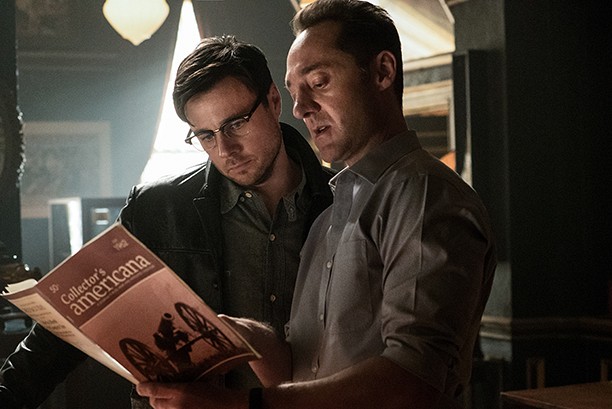The Man in the High Castle: Season 1’s Best Moments

Amazon Studios’s The Man in the High Castle had an explosive freshman season and became the site’s most popular series. Based on the novel by Philip K. Dick, the series takes place in an alternate timeline: in this timeline, the Allies lost World War II and the United States of America have been partitioned into the Japanese-controlled Pacific States and Nazi America. The series opens in this alternate version of the 1960s and follows an underground resistance group that is attempting to overthrow the yoke of imperialism in both halves of what was once a united nation. To add even more intrigue, mutual distrust has sprung up between old allies, and there have been attempts in Germany to begin a potentially disastrous war with Japan to kick them off the continent and properly rule the world.
The series returns for its sophomore season today– December 16, 2016– and so we’re looking back at some of our favorite moments from a one-of-a-kind show.
Tagomi Places Trust in Juliana Crain (Episode 7, “Truth”)

Nobusuke Tagomi (Cary-Hiroyuki Tagawa), Trade Minister for the Japanese Pacific States of America, not only employs Juliana Crain (Alexa Davalos)– a young woman who has pledged herself to the resistance– but confesses that he believes she has a higher purpose. Tagomi appears throughout the series as a rational, sympathetic character, so it was exciting to see him become a potential ally for Juliana.
Imperialism and Antiques (Episode 7, “Truth”)

This subplot was a lovely little morsel that reveals so much about the universe that makes this such a fascinating show. Robert Childan (Brennan Brown) in an antiques dealer who is passionate about American collectibles. He gets invited to dinner at the house of his favorite well-heeled Japanese customers, a married couple with an obsession for American history and culture. They collect artifacts from America just like the British collected Indian antiques during the Raj. While at dinner, they pepper him with questions about American life, and he begins to realize that they did not invite him over to befriend him or share in their love of antiquing, but to treat him as an object of curiosity. This sequence is pithily, elegantly deleveoped and showcases the power dynamics that exist in this curious post-war world.
John Smith Visits the Doctor (Episode 8, “End of the World”)

This was a surprisingly heartbreaking scene that successfully fleshed out SS officer John Smith (Rufus Sewell). While bringing his adolescent son to the doctor for what he believes to be a minor issue– his son pulled a muscle– the doctor reveals that the boy actually suffers from a form of muscular dystrophy that will eventually disable him. In line with Nazi law, the doctor reminds Smith, the boy will need to be executed, since he is seen as an undesirable. Smith is understandably shaken, and the doctor provides him with the drug so that he can execute his son in the comfort of their own home. This tragic moment caused a crisis of conscience for Smith, and Rufus Sewell’s acting throughout the scene is subtle brilliance.
Showdown at the Schloss (Episode 10, “A Way Out”)

This scene is easily one of the best in the series so far. It puts disillusioned Nazi officer Rudolph Wegener (Carsten Norgaard) face-to-face with Hitler (Wolf Muser), whom he is supposed to assassinate. This task is not at odds with his own feelings about the Reich– he is haunted by past deeds during the war and resents Hitler for asking him to commit so many atrocities. The only problem is that the man who is forcing Wegener to go through with the assassination wants to get Hitler out of the way so that he can start a war with Japan. Wegener– and the viewer– is thus torn between wanting the biggest monster in history to be killed, and begrudgingly wanting to keep him alive to prevent yet another global disaster.
Timeline Traveling (Episode 10, “A Way Out”)

Well, Season 1 certainly went out with a bang. If the series had one completely off-the-wall, jaw-on-the-floor, WTF moment, this was it: Tagomi meditates his way into another timeline– our timeline. In this version of the 1960s, the Allies won World War II, and this is the world we recognize. And, fade out. That’s it– end of the season. WHAAAAAT?!
Needless to say, Season 1 left us with more questions than answers, and we can’t wait to know what happens next.
Photo Credits: Amazon Studios


Discussion about this post